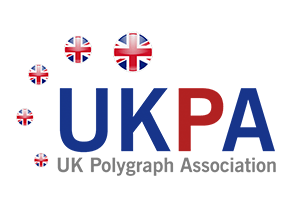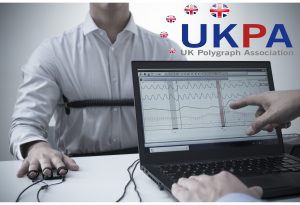Why should I make sure the examiner I use is qualified?
Have you ever wondered why it is so important to ensure the lie detector examiner you use has genuine qualifications in their field? After all, any company can claim they have an experienced and certified professional on staff but how do you know for sure? That’s where the UK Polygraph Association comes into play. With our extensive background checks and experience we provide a safe, reliable service that allows our customers peace of mind about who they are using. Before taking advantage of an alternative provider, think twice and read up on the qualifications offered by UKPA Examiners!
The Importance of a Qualified Lie Detector Examiner
In today’s society, telling the truth can sometimes be a challenge. Whether you’re in a courtroom, police investigation, or even just trying to get to the bottom of a feud between friends, it can be difficult to determine who is being truthful and who is not. That’s where the importance of a qualified lie detector examiner comes into play. A skilled examiner can accurately analyze the results of a lie detector test and provide an objective conclusion. This not only helps bring justice to those who deserve it, but it also helps protect innocent parties. Having a trustworthy and qualified examiner is crucial in ensuring the credibility and effectiveness of lie detector tests, and we take pride in that the UK Polygraph Association Examiners are the best in the business.
Different Types of Examiners and Their Qualifications
At the UK Polygraph Association, we understand that not all examiners are created equal. Each type of examiner has unique qualifications that make them suited for specific types of lie detection tests. The three main types of examiners are polygraph examiners, forensic psychophysiologists, and credibility assessment examiners. Polygraph examiners are often trained in law enforcement and have a background in criminal investigation. Forensic psychophysiologists have a background in psychology, physiology, and psychophysiology, and tend to specialize in high-stakes criminal cases. Credibility assessment examiners are trained professionals who use a variety of techniques to determine the truthfulness of a person’s statements in a range of settings. By understanding the qualifications of different types of examiners, UKPA can help you choose the right professional for your specific needs, whatever they may be.
The Benefits of Working with a Fully Certified Examiner
Working with a fully certified examiner can provide numerous benefits when it comes to lie detectors. Not only are they highly skilled and knowledgeable in their field, but they possess the necessary certifications and qualifications to ensure that any test administered is accurate and reliable. Having this assurance can provide peace of mind to those seeking to uncover the truth, whether it’s for personal or professional reasons. At Lie Detectors UK, we understand the importance of working with fully certified examiners, which is why we only work with those who have undergone rigorous training and certification processes. The result is a team of experts who are dedicated to helping you get the answers you need in the most efficient and effective way possible.
The Risks of Using an Unqualified Examiner
At the UK Polygraph Association, we understand the importance of accurate and reliable lie detector results. That’s why it’s crucial to use a qualified examiner for such tests. An unqualified examiner may not have the necessary training or experience to administer the test correctly, leading to inaccurate results that can have serious consequences. Trusting an unqualified examiner could put you at risk of false accusations or missed truths that could have impacted your case. Don’t leave the outcome of your test to chance – use a qualified examiner to ensure the results are valid and trustworthy.
Factors to Consider When Choosing an Examiner
When it comes to choosing an examiner for a lie detector test, there are a few key factors to consider. Firstly, experience is important. You want someone who has a proven track record and who knows exactly what they’re doing. Secondly, qualifications are crucial. Look for someone who is qualified in the relevant fields, such as psychology and forensic science. A qualified examiner will be able to interpret the results of the test accurately and provide you with clear, concise feedback. Finally, it’s important to consider the reputation of the examiner. Look for someone who has plenty of positive reviews online and who is respected in the industry. By taking these factors into consideration, you can ensure that you choose an examiner who will give you accurate and reliable results.
How to Check Whether an Examiner Is Fully Qualified or Not
When it comes to choosing a lie detector examiner, it’s important to make sure that they are fully qualified and trained to administer the test. After all, the accuracy of the results relies heavily on the expertise of the examiner. But how can you tell if an examiner is truly qualified? One way is to look for certifications and affiliations with reputable organisations. Additionally, it’s important to ask about their training and experience in administering lie detector tests. By taking the time to do some research and ask important questions, you can ensure that you choose an examiner who is fully qualified to get accurate results.
When it comes to choosing an examiner, it is imperative to do thorough research and find the most qualified option possible. While trying to save money is important, the advantages of working with a fully certified examiner carry greater long-term benefits. It may seem like a daunting task at first, but eventually you will find an examiner who will help you achieve your goals. After carefully considering all the factors discussed in this post, take the next step and contact a UKPA Examiner today. Our professional examiners have been providing reliable results for over 20 years with guaranteed satisfaction. All of our examiners are fully qualified as per the UK Polygraph Association guidelines so you can be sure to get accurate results.







